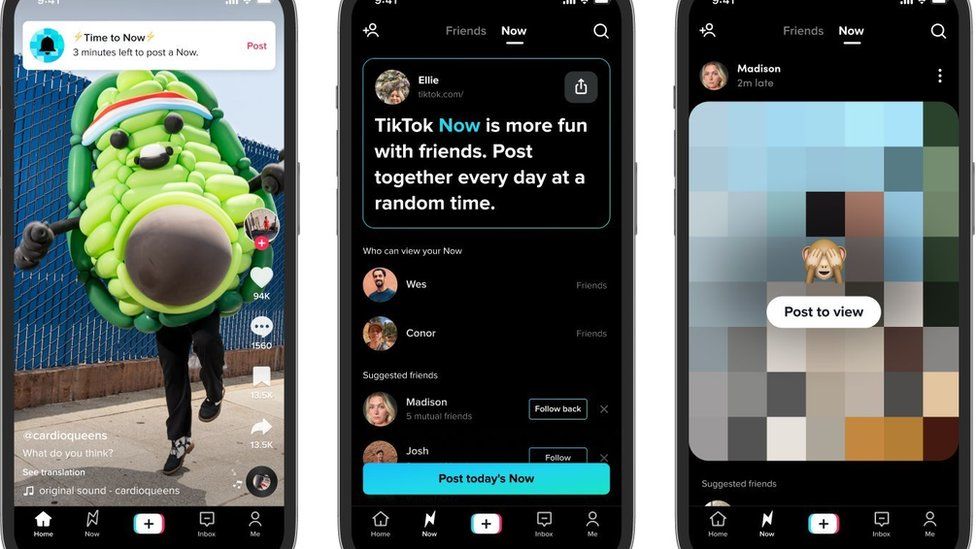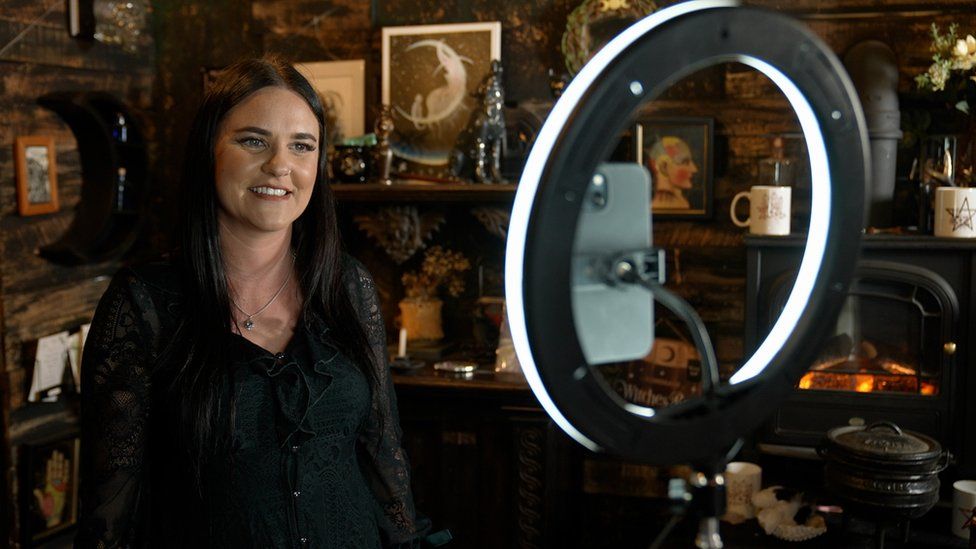Lucky Girl Syndrome: Smug TikTok trend or life-changing positivity?

Feeling lucky? Well, thousands of “lucky girls” are – and they’ve probably been popping up on your TikTok timeline.
This is how it’s supposed to work: Tell yourself that everything works out for you. The universe is rigged in your favour. You are the luckiest person.
You have Lucky Girl Syndrome.
The trend surged around New Year, and since then the main #Luckygirlsyndrome hashtag has had more than 80 million views.
It’s a spin on manifestation, the belief that positive thinking will help you to achieve your goals.
There isn’t scientific evidence for it, but lots of people swear by it. Most of the videos feature young women raving about the life-changing power of becoming a lucky girl.
But not everyone’s convinced.
Some have called it the “smuggest TikTok trend yet”.
It’s also been suggested that pressure to “think good thoughts” can be unhelpful if you suffer from certain mental health conditions.
And while positive thinking can be a good thing, an expert has told BBC Newsbeat there are some problems you can’t solve with the power of thought alone.
‘Everything is working out’
Content creator Tam Kaur is definitely a believer.
The 22-year-old from Derby was feeling negative about work when she saw Lucky Girl Syndrome online and decided to adopt the lifestyle.
For Tam, it involves daily affirmations – telling herself she is lucky and everything works in her favour – and a gratitude and manifestation journal which she fills with her ambitions.
“At first I was like, I don’t know about this,” she says.
“But the more I looked into it and figured out the meaning, which is believing that you’re the luckiest girl and you embody that and live that lifestyle, I realised it links a lot to manifestation.”
So far, she says it’s had positive results.

Tam had dreamed of being a model and was recently booked for a photo shoot.
She’s also had the opportunity to work with big brands online.
“It didn’t happen until I shifted my mindset to say it is going to happen,” she says.
“And ever since I have, I feel like opportunities have just been flying at my face and everything has been working out.”
‘Talk things into existence’
Hollie Thomas says she didn’t believe in manifestation or spirituality until about five years ago.
Now, the 20-year-old law student from Manchester is among those convinced she has Lucky Girl Syndrome.
“I think you can talk things into existence,” she says.
“It could be the smallest things, like getting through all green traffic lights on your way to work.
“It’s just having a lucky mindset.
“And sometimes I think with the Lucky Girl Syndrome, you attract things you didn’t actually know you wanted.”

Like Tam, Hollie will tell herself she’s going to get what she wants and “99% of the time” she does.
But that doesn’t mean she doesn’t believe in hard work, and she says “there is no luck in law” when it comes to her studies.
But she believes Lucky Girl Syndrome has helped her to find last minute flights, move into her flat and even, she jokes, when it comes to playing rock, paper, scissors.
“Loads of little things like that, which I don’t think I could ever actually work towards, is something of pure luck,” she says.
Confirmation bias?
Dr Carolyne Keenan is a psychologist who’s been looking into the lucky girl trend.
While she believes positive thinking is beneficial, she does have some concerns.
Carolyne says Lucky Girl Syndrome is based on an idea known as the law of assumption, which states that you can make real what you imagine for yourself.
“There are going to be, unfortunately, some situations in life that we are not able to manifest and think our way out of,” she says.
“I would be concerned about people being in situations where maybe that’s not going to be an effective strategy.”
It’s a thought critics of Lucky Girl Syndrome agree with.
Users online have reported blaming themselves when positive thinking couldn’t help a sick relative or cure long-term health conditions.
And Carolyne points out that humans are quite good at kidding ourselves when we want something to be true.

“There’s also something called confirmation bias, which I think is probably quite relevant,” says Carolyne.
Imagine you’re going for a job interview.
If you feel unprepared, Carolyne says, you might be more likely to notice little signs that fit your expectations.
So if people don’t seem engaged in what you’re saying, there’s a chance you’ll pick up on that negative sign.
Now imagine the same interview, but you feel ready for it.
“I go in thinking, ‘I know exactly what’s going to happen here, I’m gonna nail this interview, I’m definitely gonna get this job’,” Carolyne says.
“I’m then seeing people nodding away. That’s the stuff I’m going to be attending to, because that’s the stuff that supports my belief.”
Some TikTokers have also shared videos debunking the craze, saying it could leave people blaming themselves for bad things happening, even if it’s beyond their control.
And critics have pointed out that its especially hard for people with disabilities, or people seen to be oppressed by systemic racism, to “think their way out of” their situations.
Hollie admits Lucky Girl Syndrome “does sound quite crazy” but urged people to try it before dismissing it.
“Just try to tell everyone that you’re this amazing person, and you’re really lucky and see what happens,” she says.
“If that doesn’t work for you, then you have every reason to not believe it, but it’s worth a try.”


-
-
29 December 2022

-
-
-
7 December 2022

-
-
-
15 November 2022

-
-
-
31 October 2022

-
